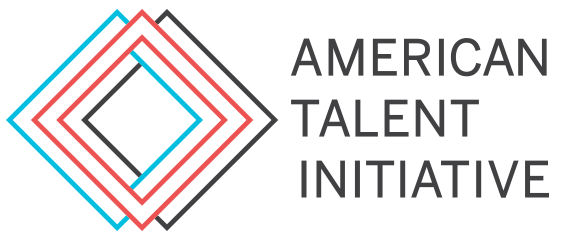Wesleyan Joins Alliance to Expand Access to Lower-Income Students

 Wesleyan has joined 67 of the nation’s top colleges and universities in an alliance to substantially expand the number of talented low- and moderate-income students at America’s undergraduate institutions with the highest graduation rates. This growing alliance, called the American Talent Initiative (ATI), brings together a diverse set of public and private institutions united in this common goal. ATI members will enhance their own efforts to recruit, enroll, and support lower-income students, learn from each other, and contribute to research that will help other colleges and universities expand opportunity.
Wesleyan has joined 67 of the nation’s top colleges and universities in an alliance to substantially expand the number of talented low- and moderate-income students at America’s undergraduate institutions with the highest graduation rates. This growing alliance, called the American Talent Initiative (ATI), brings together a diverse set of public and private institutions united in this common goal. ATI members will enhance their own efforts to recruit, enroll, and support lower-income students, learn from each other, and contribute to research that will help other colleges and universities expand opportunity.
“Bringing students of diverse backgrounds to campus enhances the learning experience of all. We’ve worked for decades to open up Wesleyan to students who might never have imagined themselves here or assumed such a school was out of reach financially,” said President Michael Roth. “There’s more work to be done, however, and we’re confident that joining together with other institutions to set economic diversity goals and to share research will help us all deepen the connections between social mobility and higher education.”
Launched in December 2016, ATI is supported by Bloomberg Philanthropies and was founded with a national goal of educating 50,000 additional high-achieving, lower-income students at the 270 colleges and universities with the highest graduation rates by 2025. Based on the most recent federal data available, there are approximately 430,000 lower-income students enrolled at these 270 institutions. ATI’s goal is to increase and sustain the total number of lower-income students attending these top-performing colleges to about 480,000 by 2025. To reach this ambitious goal, ATI aims to add more top-performing colleges to its membership in the coming months and years.
Research shows that when high-achieving, lower-income students attend these institutions, they graduate at higher rates, and access to those institutions provides them with a much greater chance of attaining leadership positions and opportunity throughout their lives.
Wesleyan and other participating institutions will further their goals by:
- Recruiting students from diverse socio-economic backgrounds through robust outreach;
- Ensuring that admitted lower-income students enroll and are retained through practices that have been shown to be effective;
- Prioritizing need-based financial aid; and
- Minimizing or eliminating gaps in progression and graduation rates between and among students from low-, moderate- and high-income families.
Wesleyan and other ATI members will share lessons learned as well as institutional data, and throughout the coming years will annually publish their aggregate progress toward meeting the national goal of 50,000 additional lower-income students by 2025. The Aspen Institute’s College Excellence Program and Ithaka S+R, the two not-for-profit organizations coordinating the initiative, will study the practices that lead to measurable progress and share that knowledge with the field through regular publications.

